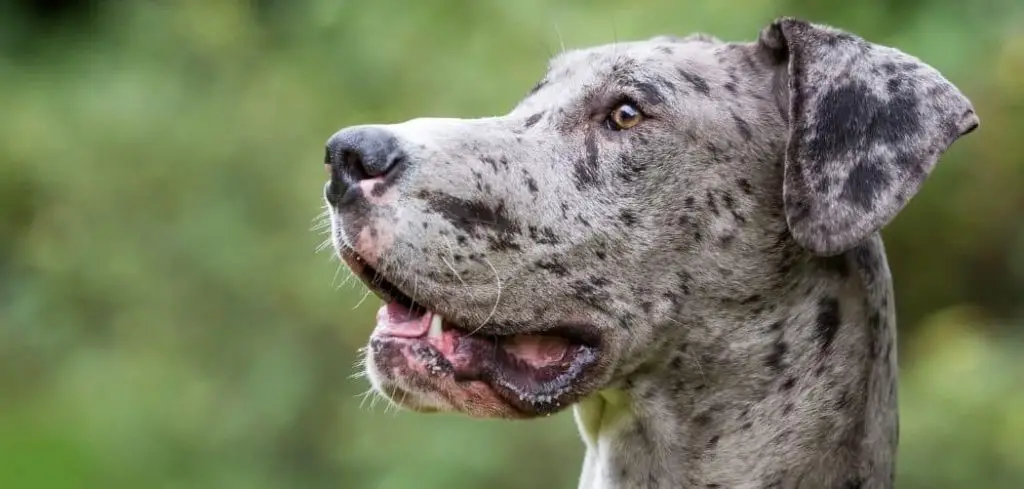Excessive gas in an old dog can be uncomfortable and concerning for both pets and owners. While occasional flatulence is normal, frequent or smelly gas may indicate underlying digestive or health issues.
We outline the common causes of excessive farting in old dogs, what you can do at home, and when to seek veterinary help.
Table of Contents
Old Dog Farting a Lot — Why It Happens
An old dog farting a lot often signals changes in digestion, diet, or overall health. Aging can affect how the gut processes food, leading to gas accumulation. Food intolerances, sudden diet changes, or swallowing air while eating can also contribute. In some cases, more serious conditions like gastrointestinal disease or metabolic disorders may be involved.

Old Dog Farting a Lot: Common Causes
Dietary Changes or Poor Digestion
Sudden changes in diet can upset an old dog’s digestive system. Introducing new foods too quickly may cause increased fermentation in the gut, leading to gas.
Owners might notice bloating, smelly gas, or loose stools. Maintaining a consistent diet with gradual changes can help reduce flatulence.
Read more: Old Dog Diarrhea (Causes and what to do)
Food Intolerances or Allergies
Some dogs develop sensitivities to specific ingredients as they age. Common culprits include dairy, wheat, or soy.
Signs may include gas, diarrhea, itchy skin, or vomiting. Identifying and eliminating problematic foods can improve digestive comfort and overall health.
Swallowing Air (Aerophagia)
Old dogs may gulp food quickly, especially if they are eager eaters or competing for food with other pets.
This behavior can introduce excess air into the digestive tract, causing gas and bloating. Slow-feeder bowls or smaller, more frequent meals can help minimize air intake.
Gastrointestinal Disorders
Conditions such as inflammatory bowel disease, colitis, or infections can increase gas production.
Symptoms may include persistent smelly flatulence, diarrhea, vomiting, or weight loss. Early veterinary intervention is important to manage these conditions and prevent complications.
Pancreatic or Liver Issues
Digestive enzyme deficiencies from the pancreas or liver can impair proper food breakdown.
Owners might notice oily stools, poor appetite, vomiting, or excessive gas. Supplementation or medical management may be required to restore healthy digestion.
Parasites
Intestinal parasites, including worms, can affect nutrient absorption and gas production.
Signs include diarrhea, weight loss, scooting, or visible worms in stool. Regular deworming and veterinary checks can prevent parasite-related digestive issues.
What to Do If Your Old Dog Is Farting a Lot
Observe feeding habits to identify triggers for gas. Slow down eating with specially designed bowls or smaller meals.
Maintain a consistent, easily digestible diet appropriate for senior dogs. High-quality proteins and limited fillers can reduce flatulence.
Avoid sudden diet changes and introduce new foods gradually to minimize gut upset.
Consider adding digestive supplements like probiotics under veterinary guidance to support gut health.
Ensure your dog gets gentle exercise to promote healthy digestion and regular bowel movements.
Monitor other symptoms such as vomiting, diarrhea, or weight loss, as these may indicate more serious issues requiring veterinary care.
When to Call or Visit Your Vet
Seek veterinary attention if your old dog:
- Exhibits persistent, foul-smelling gas accompanied by diarrhea or vomiting.
- Shows signs of pain, bloating, or discomfort in the abdomen.
- Has unexplained weight loss, poor appetite, or lethargy.
- Displays additional symptoms such as coughing, labored breathing, or neurological signs.
Prompt veterinary evaluation can identify underlying health conditions, guide dietary adjustments, and prevent further digestive complications.
Read more: Old Dog Eating Dirt (Could digestive upset be a factor?)
Key Takeaway
Excessive gas in an old dog is often linked to diet, digestion, or underlying health conditions. While minor flatulence may be manageable at home, persistent or smelly gas warrants attention.
At-home care includes monitoring feeding habits, maintaining a senior-appropriate diet, introducing changes gradually, and providing gentle exercise.
Keeping track of symptoms and consulting a veterinarian ensures your senior dog’s digestive health is properly supported, reducing discomfort and improving quality of life.
